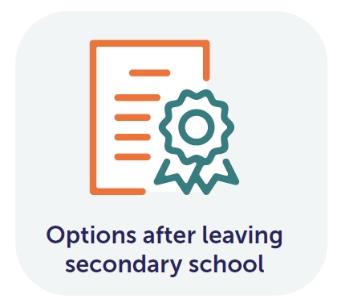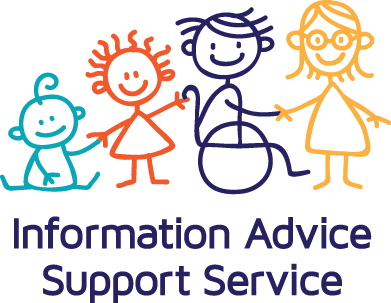Options after leaving secondary school
Options after leaving secondary school
Before you reach the age of 16, you need to have a think about your options after leaving secondary school.
Post 16 Settings
If your school has a post-16 provision you may wish to stay there. The school will already know what extra help you need and can continue to support you following a post-16 curriculum.
Speak to your parents and organise a meeting with the SENCO and career lead to discuss your options.
There are other settings which provide post-16 education. You can find a list of these on the Westminster Local Offer

College / Further Education (FE)
Every further education college must do all they can to make sure their students with special educational needs (SEN) get the extra help that they need to support them with their studies.
Find out the names of the person in charge of SEN provision – Head of additional Learning, Head of Inclusive/Supported Learning.
In year 11/12, you can ask for a meeting and explain to them how you were supported in school and ask what can be arranged for you within the college so that the support is similar.
To look at colleges in the area, please visit the Westminster Local Offer
When choosing where to study…
- You should do some research related to your goals and your interests
- You should discuss your preferences with key people
- Use the Local Offer website
- Visit Post-16 setting at Open Days
- Find out about the types of support the setting offers young people with SEN – check individual settings
Careers Advice
There are many organisations that can support and offer free career advice to young people who need further advice or are not in education or training (NEET).
Action West London (16-24yrs) https://actionwestlondon.org.uk/projects/employment/
Genius Within (16-24yrs) www.geniuswithin.co.uk
Making the Leap (16yrs+) https://makingtheleap.org.uk/what-we-do/young-people/
Mastering My Future employability programme https://2-3degrees.com/school-programmes/mastering-your-future-programme/
MIND Building Employment, Skills and Training (BEST) programme (18yrs+) www.bwwmind.org.uk/how-we-can-help/westminster-services/building-employment-skills-and-training-in-westminster/
Resurgo Spear (16-24yrs) www.resurgo.org.uk/spear-programme/the-spear-programme/
Scope Career Pathways (16-25yrs) www.scope.org.uk/career-pathways
Westminster Employment Service can help those seeking apprenticeships, paid/unpaid work 16yrs+ https://www.westminster.gov.uk/westminster-employment-service-residents
Westminster Adult Education Service can help those 19yrs+ with information and opportunities including pre-apprenticeships, apprenticeships, traineeships, CV support, Kickstart, and workshops https://www.waes.ac.uk/youth-employment
Adult Learning
You may wish to go to University if you have achieved the qualifications necessary.
Extra support is available depending on your needs.
Help with money
If you need help with money while studying , there is a range of support available to you:
16-19 Bursary Fund
You could get a bursary to help with education-related costs if you’re aged 16 to 19.
University and college hardship fund
You could get extra money from your university or college if you’re experiencing financial hardship.
Disabled Students’ Allowances
You can apply for Disabled Students’ Allowances (DSAs) to cover some of the extra costs you have because of a mental health problem, long term illness or any other disability.
Work-based training – supported routes to employment and training
Supported internships
Supported internships are a study programme that can help you get into a job. It provides ‘on the job’ training. You need to be aged between 16-25 with an Education Health Care Plan (EHCP).
Traineeships
Traineeships are for young people who want to work but who need extra help and support. They offer training and work experience.
- It can last up to six months
- You do not need an EHCP
- You won’t be paid, but your employers can sometimes give you expenses for things like travel and meals
- Traineeships prepare you for future careers by helping you to become ready for work
- You can also contact your local college/ training provider to see if they are offering traineeships
Apprenticeships
Apprenticeships combine training in a job with study. They can take between 1 and 5 years to complete. You will earn a salary and gain a qualification.
Salary – an income / money for working
Employment
Reasonable adjustments
If you have a disability, employers have a duty to change things and remove barriers you may face because of your disability so you can work and apply for jobs.
The Equality Act calls this the duty to make reasonable adjustments.
This may include:
- Changing the way things are done
- Making physical changes
- Providing extra aids
Access to Work
Young people on a work placement with an employer as part of a supported internship or traineeship will be eligible for Access to Work for the work placement only. This can fund:
- Extra travel
- Job coaches
- Costs of equipment
- Extra support
